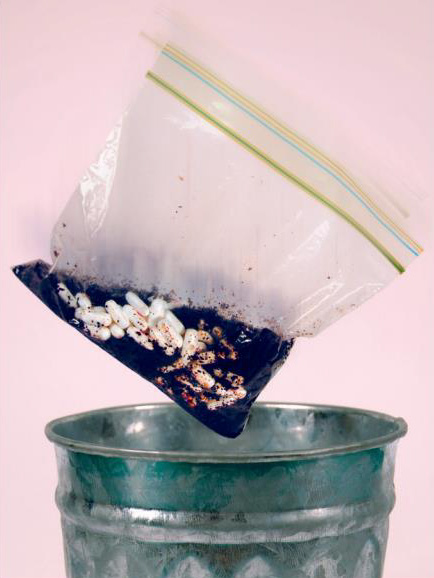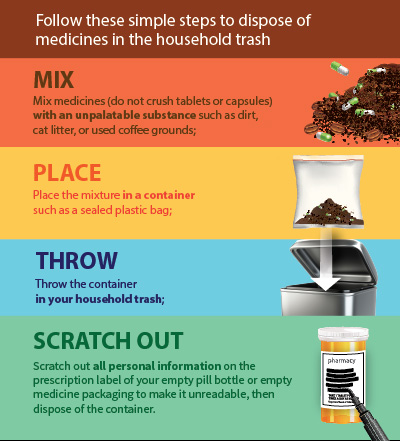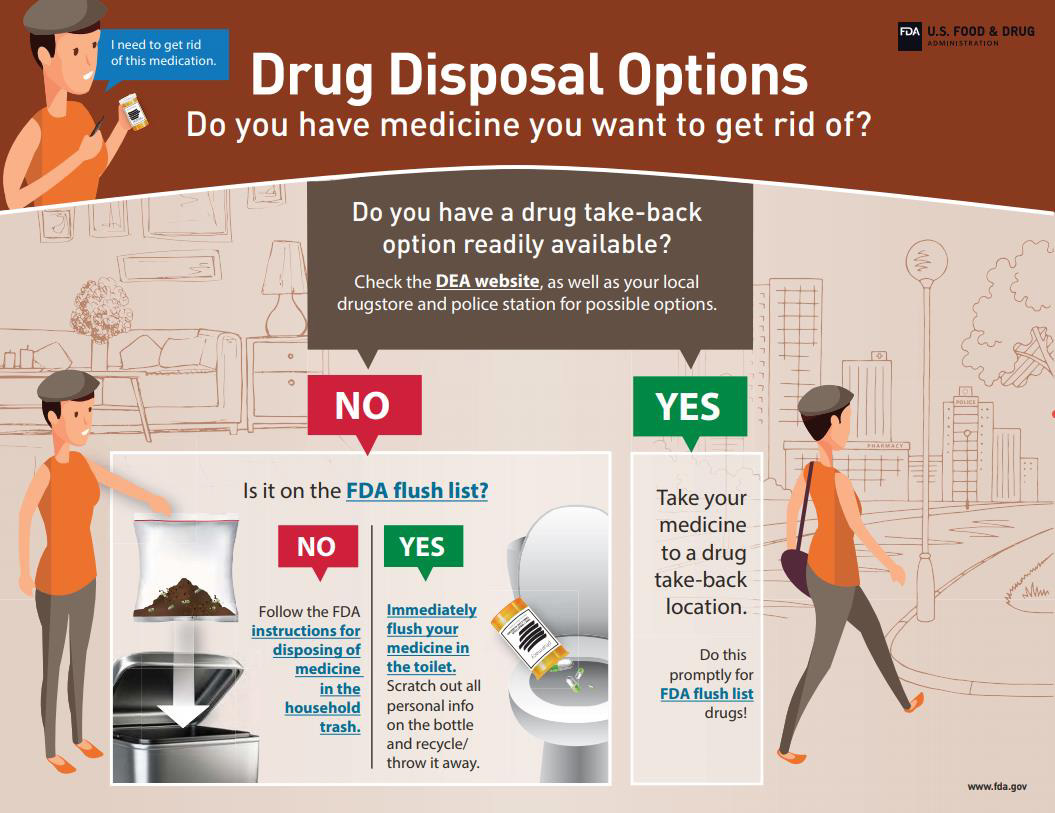


Joseph R. Anticaglia MD
Medical Advisory Board
Unused or expired medications pose a health risk to you and your family. Safe disposal of unneeded medications lessens the likelihood of unintended poisonings. One option is to find a drug-take back location and deposit the medicines at that location which might be a hospital, pharmacy or police station. If drug-take back programs are not available, you can get rid of medicines at home by properly placing them in your trash or by flushing them down the toilet or sink.
Certain medications on the flush list are sought-after by authorities because of their potential for “misuse and abuse,” which can result in death. Medications such as oxycodone, diazepam, demerol, fentanyl, hydrocodone and other drugs are on the FDA’s list of medicines that can be flushed down the toilet or sink to prevent accidental ingestion by children, pets or anyone in your household. To obtain a list of such medications, search the FDA’s website using the words flushing and disposal. “Don’t flush your medicines unless it is on the flush list!”
The majority of non-flush list medications can be disposed of in household trash.


Periodically look in your medicine cabinet to trash unused or expired medicines. The FDA urges people to dispose of drugs in the right way. Keep in mind that certain medications have a shelf life well beyond the final date on the medicine bottle. If you have questions about disposing of your medications, discuss them with your pharmacist or doctor.

Storage — Store your medicine in a cool, dry place. Heat and moisture can damage your medications.
Syringe disposal — Telephone ahead of time, for example, a hospital or nursing home, to ascertain if you can bring properly labeled and packaged syringes and sharps (e. g., needles) to such a facility.
This article is intended solely as a learning experience. Please consult your physician for diagnostic and treatment options.